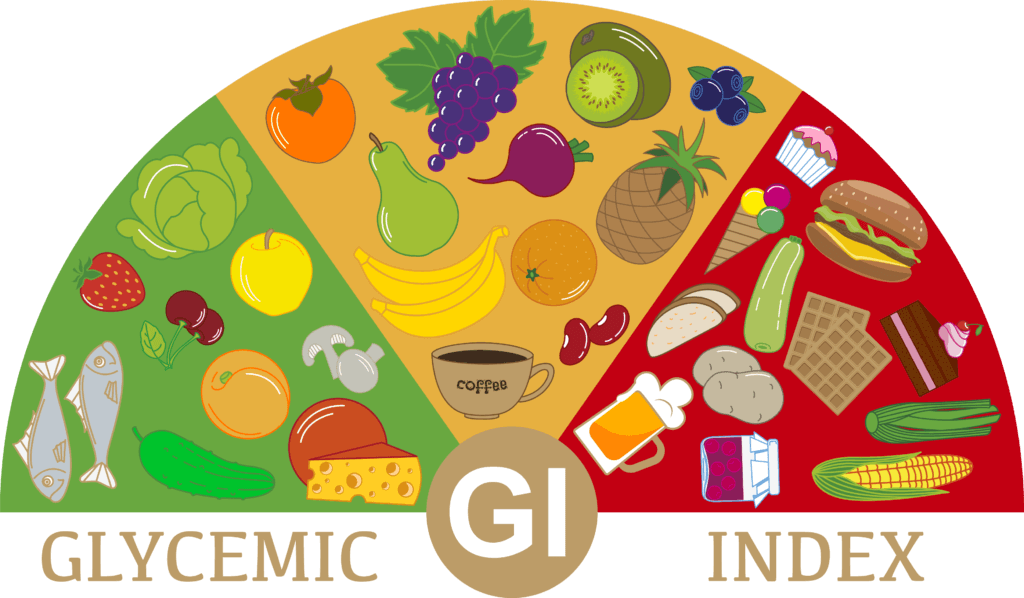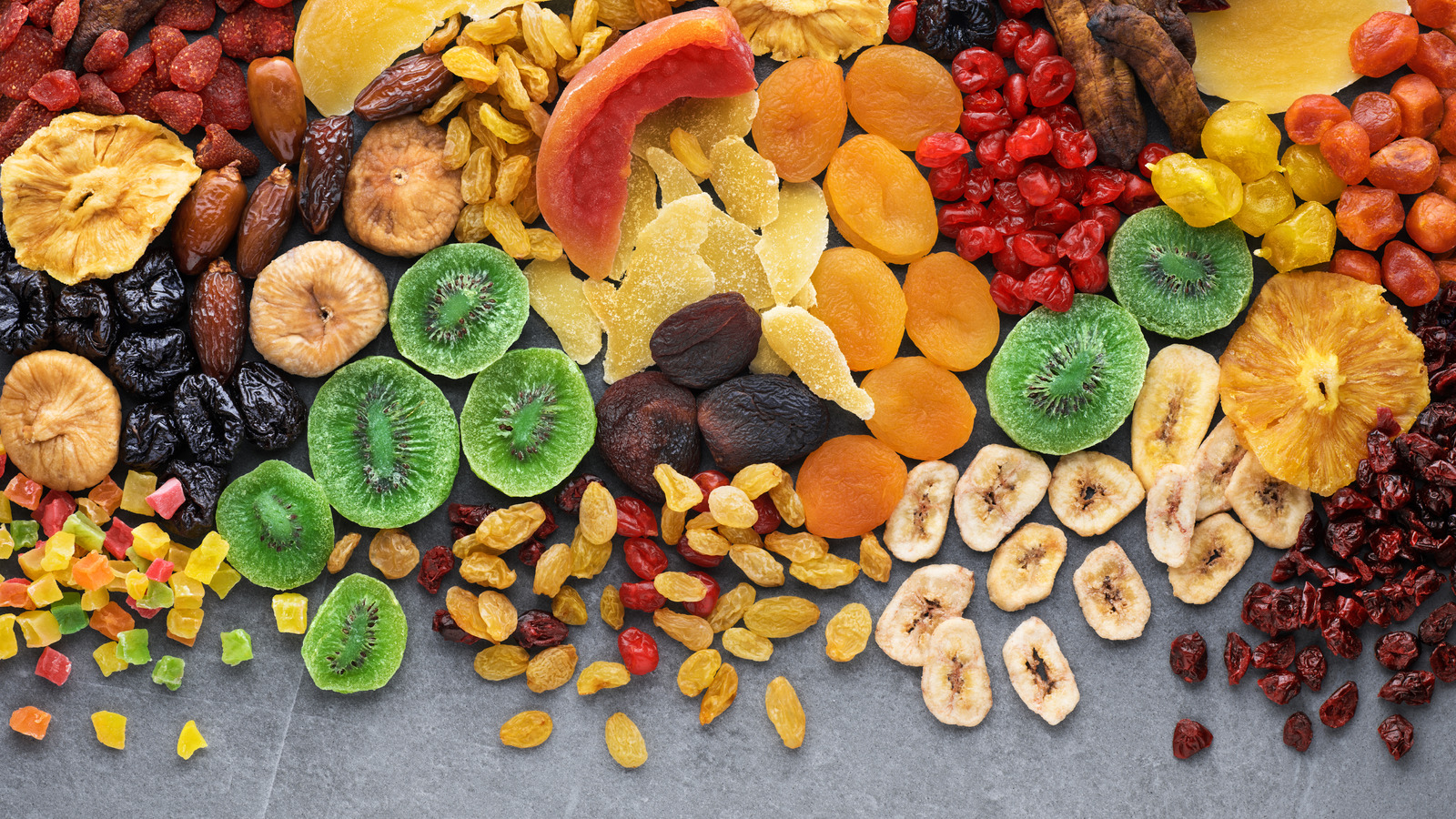Navigating fruit choices for individuals with diabetes requires careful consideration due to the natural sugars found in fruits. However, with the right knowledge, it is possible to incorporate low-sugar options into a diabetic-friendly diet. By understanding the glycemic index, focusing on certain fruits, practicing portion control, and avoiding certain fruit products, individuals with diabetes can make informed choices to manage their blood sugar levels effectively. In this article, we will explore the top five helpful pieces of information to guide diabetics in making wise fruit choices.
1, Glycemic index (GI).
The glycemic index (GI) is indeed a measure of how quickly a carbohydrate-containing food raises blood sugar levels. It is especially relevant for individuals with diabetes who need to manage their blood sugar levels effectively.
The GI scale ranges from 0 to 100, with higher values indicating that a food raises blood sugar levels more rapidly. Foods with a low GI are digested and absorbed more slowly, leading to a slower and more gradual rise in blood sugar levels.
For individuals with diabetes, consuming fruits with a low GI can help minimize blood sugar spikes. Fruits with a GI of 55 or below are generally considered better choices because they have a milder impact on blood sugar levels. These fruits are typically rich in fiber, which slows down digestion and helps regulate blood sugar.
Examples of fruits with a low GI include cherries, apples, pears, berries (such as strawberries and blueberries), peaches, plums, and grapefruit. These fruits can be incorporated into a balanced diet for individuals with diabetes to help manage their blood sugar levels effectively.
It's important to note that while the GI is a useful tool, it shouldn't be the sole factor in determining food choices. Other factors such as portion size, overall carbohydrate content, and the presence of other nutrients also play a role in managing blood sugar levels. Consulting with a healthcare professional or registered dietitian can provide personalized guidance on managing diabetes and incorporating fruits into a healthy eating plan.
2, Berries are beneficial.
Berries, including strawberries, blueberries, raspberries, and blackberries, are indeed excellent options for individuals with diabetes. They offer a range of benefits that make them a favorable choice:
Low in sugar: Berries are relatively low in sugar compared to many other fruits. This can help prevent sharp spikes in blood sugar levels after consumption.
High in fiber: Berries are rich in dietary fiber, which aids in slowing down the digestion and absorption of carbohydrates. This helps to regulate blood sugar levels and can contribute to improved glycemic control.
Rich in antioxidants: Berries are packed with antioxidants, including various phytochemicals like anthocyanins, flavonols, and ellagic acid. These antioxidants have been associated with numerous health benefits, such as reducing inflammation and protecting against chronic diseases.
Low glycemic load: Berries have a relatively low glycemic load, which takes into account both the glycemic index of a food and the amount of carbohydrates it contains. This means that despite containing carbohydrates, berries have a minimal impact on blood sugar levels due to their fiber content and other factors.
Incorporating berries into a balanced diet can provide essential nutrients, while their low sugar content and high fiber content make them a suitable choice for individuals with diabetes. They can be enjoyed as a snack, added to cereals or yogurt, or used in various recipes while keeping portion sizes in mind.
As always, it's a good idea to consult with a healthcare professional or registered dietitian to tailor your diet to your specific needs and ensure it aligns with your diabetes management plan.
3, Portion control is crucial.
Portion control plays a vital role in managing blood sugar levels for individuals with diabetes, even when consuming fruits that are considered low in sugar or have a low glycemic load. Here are some important points to consider:
Carbohydrate awareness: Fruits, despite being nutritious, contain carbohydrates in the form of natural sugars. It's crucial for individuals with diabetes to be aware of their carbohydrate intake from fruits and incorporate it into their overall meal plan.
Portion size: Controlling the portion size of fruits is important to manage blood sugar levels effectively. Instead of consuming large servings, opt for smaller portions. This allows for a more controlled intake of carbohydrates.
Pairing with protein or healthy fats: To further slow down the absorption of sugar from fruits, consider pairing them with a source of protein or healthy fat. This combination helps to mitigate blood sugar spikes and provides a more balanced and sustained release of energy. For example, you can enjoy berries with a handful of nuts, have apple slices with a serving of cheese, or add avocado to a fruit salad.
Monitoring blood sugar response: It's crucial for individuals with diabetes to monitor their blood sugar levels regularly, especially when introducing new fruits or adjusting portion sizes. This helps to understand how different fruits and portion sizes affect their blood sugar levels and make adjustments accordingly.
Remember, everyone's response to carbohydrates, including fruits, can vary. It's important to work with a healthcare professional or registered dietitian who can provide personalized guidance based on your individual needs, medication regimen, and blood sugar management goals. They can help you develop a well-balanced meal plan that incorporates appropriate portion sizes and aligns with your diabetes management plan.
4, Citrus fruits and apples.
Citrus fruits such as oranges, grapefruits, lemons, and apples are generally considered good choices for individuals with diabetes due to their lower glycemic index compared to tropical fruits like pineapples or mangoes. These fruits can be part of a balanced diet for individuals managing their blood sugar levels. Here are some key points to consider:
Lower glycemic index: Citrus fruits and apples tend to have a lower glycemic index, meaning they have a milder impact on blood sugar levels compared to fruits with higher glycemic index values. This is partly due to their fiber content, which slows down digestion and absorption.
Moderation is key: While citrus fruits and apples are generally considered better choices for individuals with diabetes, it's still important to consume them in moderation. Portion control remains crucial to managing blood sugar levels effectively. Be mindful of the quantity of fruit you consume and consider incorporating them into your overall meal plan.
Blood sugar monitoring: As with any food, it's important to monitor your blood sugar levels after consuming citrus fruits or apples. This allows you to gauge your individual response to these fruits and make any necessary adjustments to your diet or portion sizes.
Nutritional value: Citrus fruits and apples are rich in vitamins, minerals, and dietary fiber. They provide a range of essential nutrients while being relatively low in calories. Including them as part of a well-rounded diet can contribute to overall health and nutrition.
It's worth noting that individual responses to fruits and their impact on blood sugar levels can vary. Some people with diabetes may find that certain fruits affect their blood sugar levels differently. Therefore, it's important to work with a healthcare professional or registered dietitian who can provide personalized advice based on your specific needs, health goals, and blood sugar management plan. They can help you create a tailored meal plan that includes appropriate portions of fruits while considering your overall carbohydrate intake.
5, Avoid fruit juices and dried fruits.
When it comes to managing blood sugar levels, it is generally advisable for individuals with diabetes to consume fruit juices and dried fruits sparingly. Here's why:
Fruit juices: Fruit juices, even if they are 100% pure and without added sugars, can have a concentrated amount of natural sugars without the beneficial fiber found in whole fruits. The absence of fiber makes it easier for the sugar to be rapidly absorbed into the bloodstream, potentially leading to a sharp rise in blood sugar levels. It's preferable to opt for whole fruits instead, as they contain fiber that slows down digestion and helps regulate blood sugar levels.
Dried fruits: Dried fruits, such as raisins, dried apricots, or dates, have a higher sugar content compared to their fresh counterparts due to the removal of water. As a result, the sugar is more concentrated in a smaller volume. Even though dried fruits contain fiber and some beneficial nutrients, their higher sugar content can cause a more significant impact on blood sugar levels when consumed in large quantities. If you choose to include dried fruits in your diet, it's important to be mindful of portion sizes and account for their carbohydrate content in your overall meal plan.
Whole fruits: Whole fruits are generally a better choice for individuals with diabetes because they contain fiber, which slows down the absorption of sugar into the bloodstream and helps regulate blood sugar levels. Additionally, whole fruits provide a range of essential vitamins, minerals, and antioxidants. It's advisable to consume whole fruits in moderate portions and incorporate them into a balanced meal plan.
As always, individual needs and responses to different foods may vary. It's essential to work with a healthcare professional or registered dietitian who can provide personalized guidance based on your specific health needs, blood sugar management goals, and overall dietary requirements. They can help you develop a meal plan that includes appropriate portions of fruits and aligns with your diabetes management plan.
Making informed fruit choices is crucial for individuals with diabetes to maintain stable blood sugar levels. By considering the glycemic index, favoring berries, practicing portion control, and being cautious with certain fruits and fruit products, diabetics can enjoy the benefits of fruits while minimizing the impact on their blood sugar levels. Remember to consult with a healthcare professional or registered dietitian to create a personalized meal plan that suits individual needs and preferences. With the right approach, a wide range of low-sugar fruits can be incorporated into a diabetic-friendly diet, supporting overall health and well-being.





Comments
Post a Comment